Stormont deadlock: 'Stakes are high', says Simon Coveney
- Published
- comments
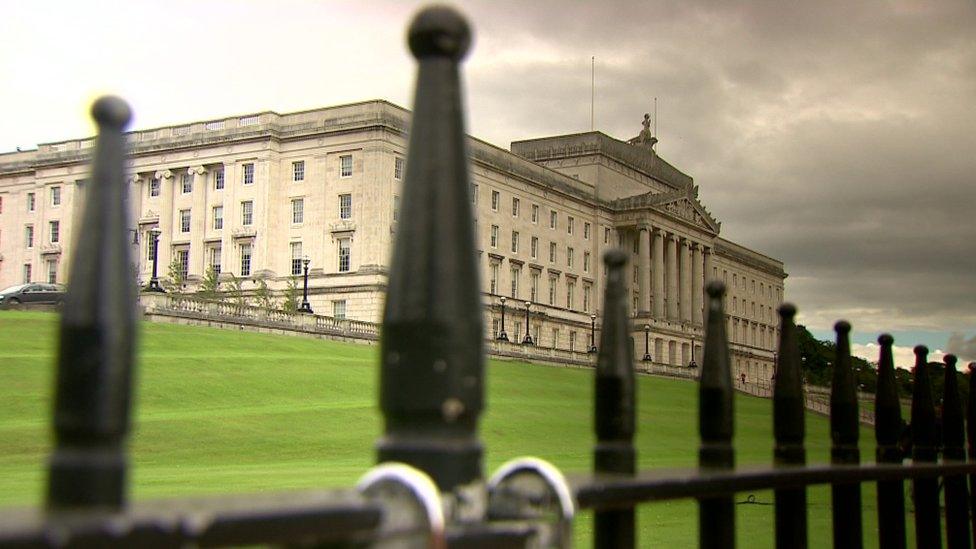
With no ministers in place, civil servants have been making the decisions on running public services
Tánaiste Simon Coveney has said there is a window in June to try to restore the Northern Ireland Assembly, but the "stakes are high".
He was speaking after talks with the Stormont party leaders and the NI Secretary, Karen Bradley.
The British and Irish governments were due to review progress in the talks at the end of May.
Mr Coveney said the governments were planning to "intensify the process" over the next few weeks.
This is the fourth round-table discussion that has taken place since a fresh talks process began on 7 May, as attempts to restore power sharing at Stormont continue.
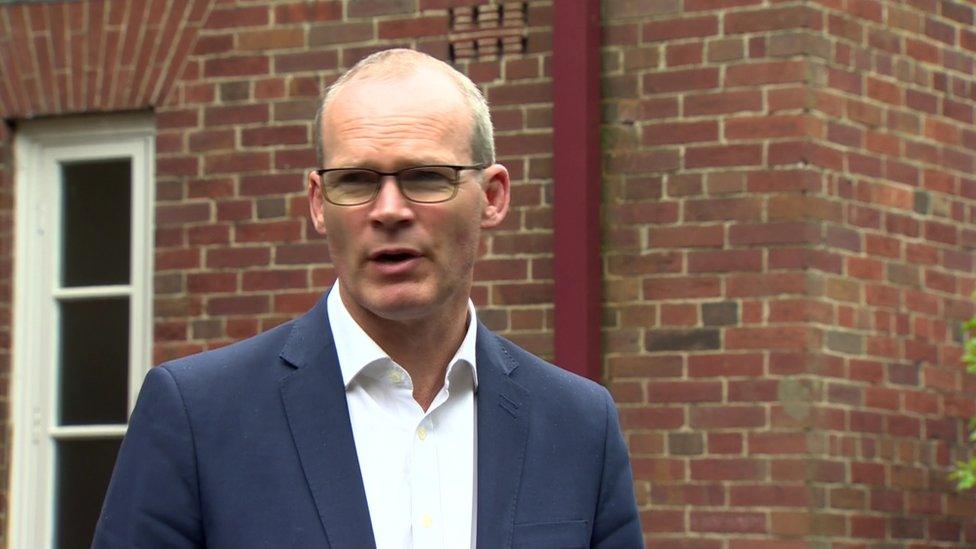
Simon Coveney said there are plans to "intensify" the talks process
"If we go into the summer without a deal, there is a lot of uncertainty. There are serious issues that are going to impact on the lives of people in Northern Ireland," he said.
"This window is important in terms of delivery."
He admitted that the change of prime minister at Westminster could impact the talks but that both governments were committed to working with the parties.
He acknowledged that there are areas of disagreement that remain between the parties, but added no-one believes overcoming differences would be easy.
"Parties can take it now or not, there's always an excuse," he told reporters at Stormont House.
Is there any sign of a breakthrough?
At present, the chances of that are slim, but on Wednesday, the taoiseach (Irish prime minister) said there was a "small but real window" to reach a deal.
Mr Coveney, the taoiseach's deputy, attended Thursday's talks alongside Northern Ireland Secretary Karen Bradley, while Mr Varadkar will meet Labour leader Jeremy Corbyn in Dublin to discuss Brexit and the political situation at Stormont.
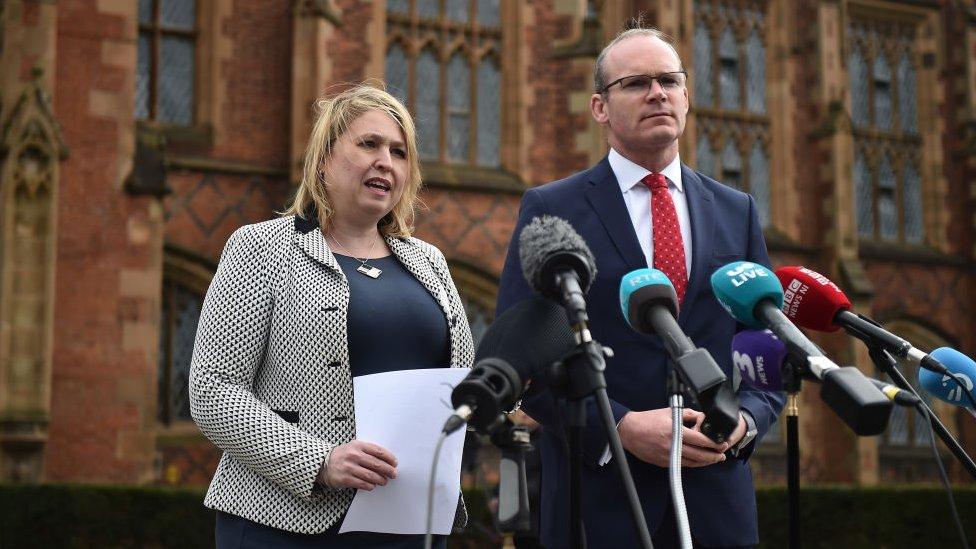
NI Secretary Karen Bradley attended Thursday's talks alongside Simon Coveney
After Thursday's talks, Mrs Bradley said "significant challenges" still remain.
"I'll be recommending that we now move into a very intensive period of talks at leadership level to make sure that we can address the issues that remain," she added.
"I'm positive that there is the right attitude and there is the right will there, but I think it would be wrong for me to do anything other than be clear that there are some significant challenges that still remain."
Northern Ireland has been without a devolved power-sharing government for more than two and a half years, after the DUP and Sinn Féin split in a bitter row.
Several talks processes since then have failed.
The latest negotiations were announced by the British and Irish governments after the murder of journalist Lyra McKee in April.
At her funeral, politicians came under pressure to solve the Stormont impasse.
The current talks mark the first fully-fledged round of talks since negotiations collapsed in February 2018.
Both governments had called for them to be "short and focused".
The Alliance Party is calling for a fresh election if the assembly cannot be restored after this round of talks.
Allow X content?
This article contains content provided by X. We ask for your permission before anything is loaded, as they may be using cookies and other technologies. You may want to read X’s cookie policy, external and privacy policy, external before accepting. To view this content choose ‘accept and continue’.
What has happened during the talks so far?
The process saw the establishment of five working groups to be chaired by former and current Stormont civil servants, looking at particular areas of disagreement between the parties.
Although talks have not broken down, the parties' respective stances on Irish language, same-sex marriage and legacy matters have not changed.
The recent European election campaign also briefly diverted the parties' attention away from the process.
'Blackmail'
During the talks, Karen Bradley was accused of using the issue of compensation for victims of Historical Institutional Abuse (HIA) as a "blackmail tool" to get the parties to reach a deal, after she pushed back the prospect of taking legislation through Westminster in the absence of an executive.
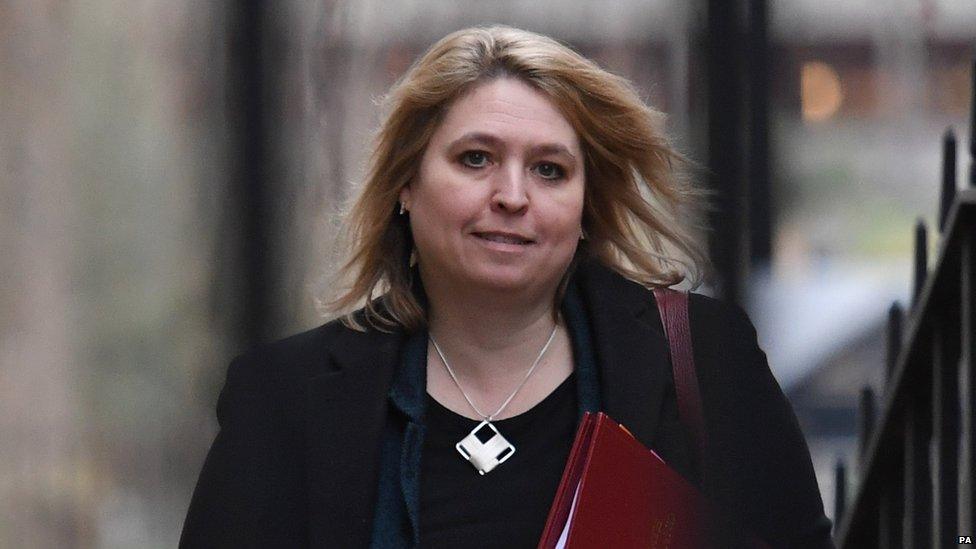
Secretary of State Karen Bradley met the Stormont parties on Wednesday
She met the Stormont parties on Wednesday and discussed a range of matters with them, including HIA.
However, the secretary of state maintains that several outstanding HIA issues must first be resolved by the political parties before she can take any action.
Allow X content?
This article contains content provided by X. We ask for your permission before anything is loaded, as they may be using cookies and other technologies. You may want to read X’s cookie policy, external and privacy policy, external before accepting. To view this content choose ‘accept and continue’.
Why is Sajid Javid visiting NI?
The Home Secretary was in Northern Ireland on Thursday to discuss the impact of Brexit with DUP leader Arlene Foster and business representatives.
He is among a number of Conservative MPs who have declared they are running in the leadership race to become prime minister after Theresa May resigns next month.
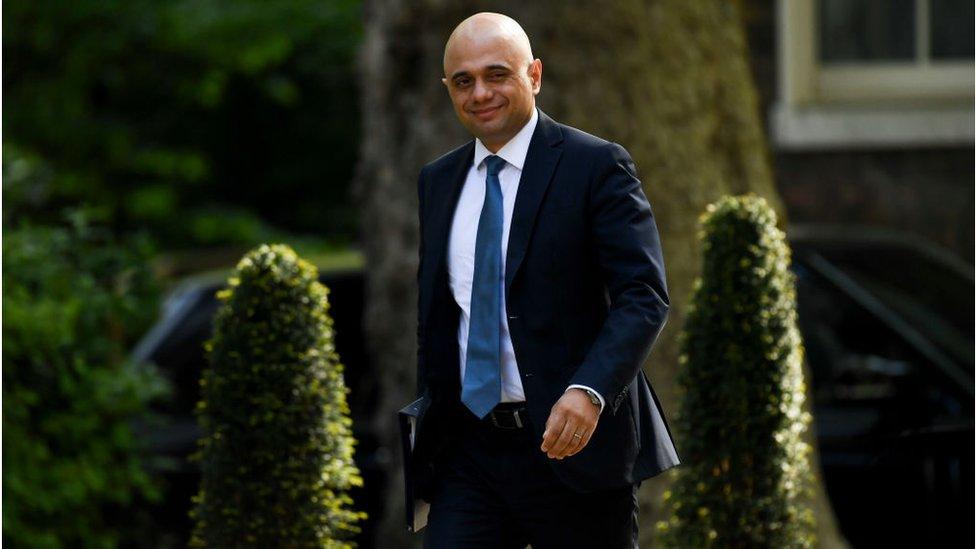
Sajid Javid was in Northern Ireland on Thursday to discuss the impact of Brexit
Both the DUP and local business figures have criticised the approach taken by a government review of migration policy as too "rigid".
They have been particularly critical of a suggestion that there should be a minimum salary requirement of £30,000 for skilled migrants.
The CBI has pointed out that around 70% of the Northern Ireland workforce earn less than this suggested threshold.
- Published5 February 2018
